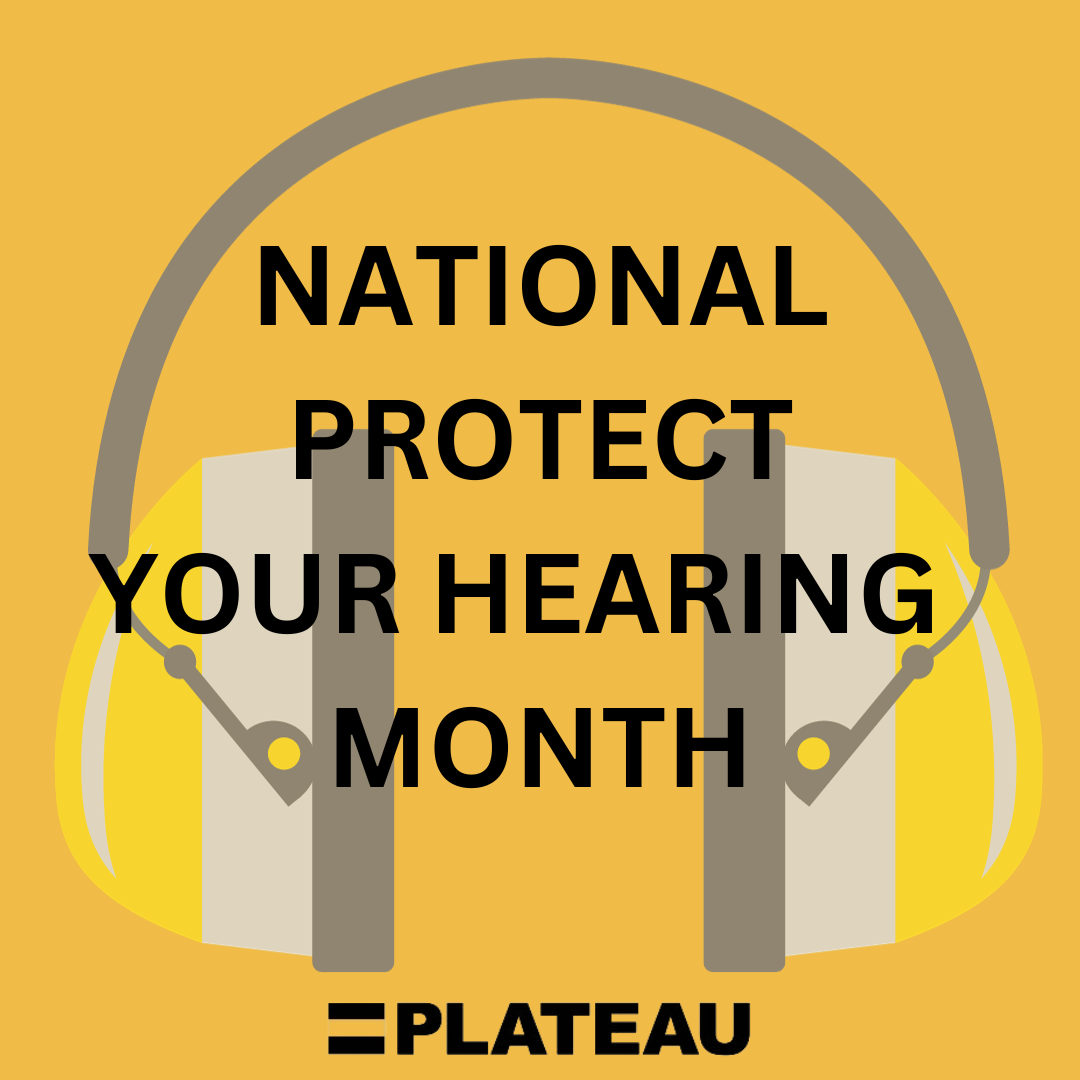Plateau Excavation

Did you know that October is National Protect Your Hearing Month?
Every year approximately 30 million workers experience hazardous noise exposure on the job, and over 9 million are at risk for severe hearing loss from occupational exposure to noise.
A worker’s hearing may deteriorate over time if exposed to excessively loud noise. Many workers across every industry and sector face the danger of developing work-related hearing loss.
Loud noises can permanently impair your hearing, and most people aren’t aware of the damage until it’s too late. Once someone loses their hearing, they will not be able to recover it.
How is the ear damaged by noise?
When sounds are too loud and prolonged, tiny bundles of hair-like structures on top of hair cells in the inner ear are harmed, causing damage to your hearing. The average person’s inner ear contains about 16,000 hair cells at birth. Your brain detects sounds because of these cells. When hair cells are damaged, they cannot respond to sound, resulting in noise-induced hearing loss (NIHL).
Sound can cause damage if:
- You have to shout to be heard.
- You have decreased or “muffled” hearing for various hours after exposure.
- The noise makes your ears ring.
- The noise is painful to your ears.
Here are some hearing safety tips in the workplace to help you protect your hearing against damage.
Do:
- Wear hearing protection when the sound level in your workplace exceeds 85 decibels (about the sound of someone yelling).
- Choose hearing protection that’s appropriate for the task and for you. Your options are:
- Earplugs – which can be either pre-molded or moldable, disposable, or reusable. Ear plugs are inserted to block the ear canal.
- Earmuffs – which are made of sound-proofing material. Earmuffs have soft ear cushions and hard outer cups that are held together by a headband and are fitted around the ear.
Do Not:
- Use radio headsets in place of hearing protection. They do not protect your ears against noise exposure.
- Modify your hearing protection.
- Wear earplugs if you have an ear infection.
- Insert ear plugs with dirty hands, as you can introduce dirt and bacteria into your ears, causing an ear infection.
- Allow hair and clothing to interfere with the fit of the hearing protection.
- Remove hearing protection for even a short time during noisy work, as it will substantially reduce the protection.
This October, for National Protect Your Hearing Month, let’s work together to raise awareness about noise-induced hearing loss (NIHL) and the importance of protecting your hearing. At Plateau, hearing protection is always available from your Supervisor, Safety Manager, or the Plateau Safety office.